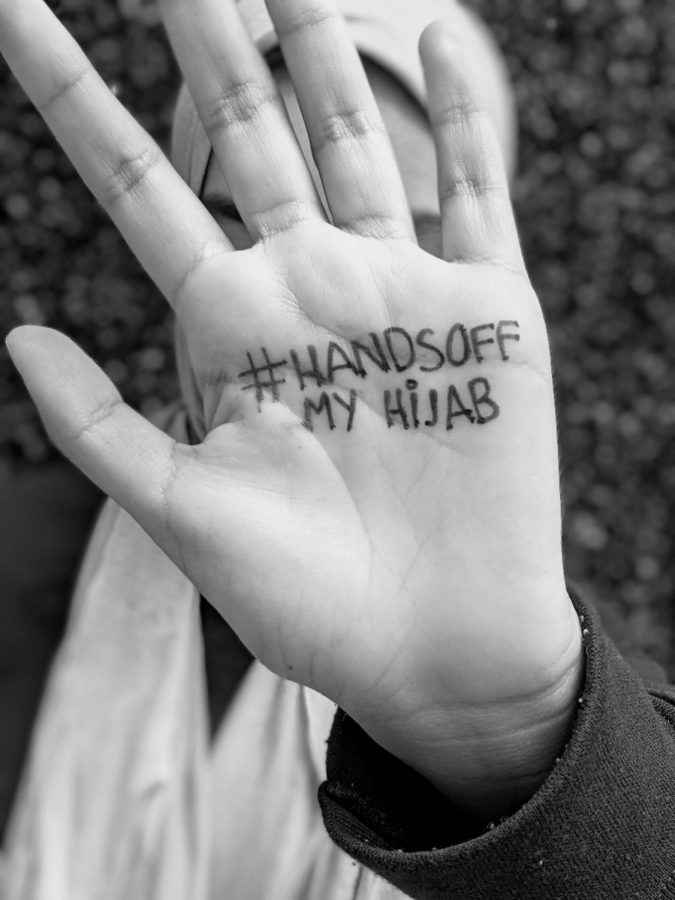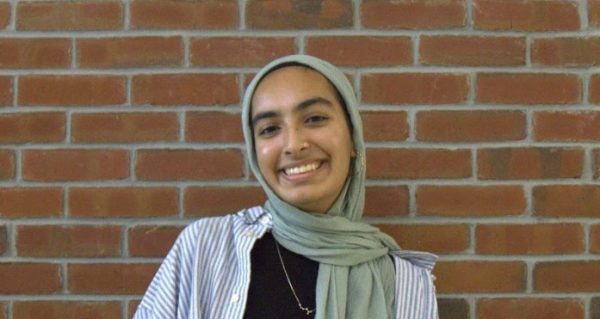My hijab is a symbol of power, not oppression
The world must realize that the hijab is a symbol of power, not oppression.
April 28, 2021
When I used to think about France, I pictured cobblestone streets, cheese, lilting accents, grand cathedrals and high fashion. Glamorous shots in movies had formed hyper romanticized images of chocolates and beautiful buildings in my mind. France almost seemed too good to be true.
France, of course, is most well known for the Eiffel Tower, which has become a symbol of the country. But until recently, I did not know that under that iconic tower, two women of my faith would be stabbed in a religious hate crime. Most recently, the French Senate voted to ban girls under 18 from wearing the hijab in public, among other restrictions. Although it is unlikely the other half of the French legislative branch, the National Assembly, will pass the law, the actions of the French government have made a lasting impact.
Unfortunately, this is not the first time the French government has attacked women who wear hijabs. About thirty years ago, French schoolgirls were suspended for wearing their hijabs to class. The Minister of Education declared that it was up to the schools to decide whether or not a student should be suspended for her headscarf. This set off around 100 further suspensions from 1994 to 2003 and created tension between Muslims and the French government.
Little to no efforts have been made to end Islamophobia in France and as the years progress, the rift has only widened. Apart from the conflict over the hijab, last summer, controversy over a racist and offensive cartoon mocking Islam led to the killing of both native French and Muslim citizens. Some suggest a hijab ban is a form of retaliation by the French government in response to the murder of teacher Samuel Paty. To understand why these laws are so damaging, you have to first understand what the hijab is.
In the Holy Quran, God commands Muslim women to cover their bodies when around men to whom they are not related. The purpose is to maintain dignity and to protect oneself from a man’s gaze because God knows that men lack self-control. But after groups like the Taliban and ISIS used violence to force the hijab on women in their areas, people began to think this oppression was happening to all hijab-wearing women.
The French Senate claims that their new law protects these women from the men in their homes that oppress them and force them to wear the hijab. However, for some, these laws do not protect anybody and instead single out Muslim women and men. Personally, my hijab makes me feel more secure than these laws that do not understand my culture. I am thankful for my hijab as it protects me from wandering eyes. My loose clothing hides my waist and the burkini, which the French Senate seeks to ban, hides my maturing body.
My hijab also represents a devotion to the Muslim faith and God. Religion is important to thousands of women, and it is not the government’s place to take away a basic right. The hijab is my choice and my parents have made that clear from the beginning, no one has a say other than me. And that is where there is a disconnect between the Senate’s idea of the hijab and one from a person from my faith.
The French government claims that extremists or “terrorists” come from Islamic separatism. This, according to the French, is the idea that little Muslim girls are dehumanized and forced to veil themselves because of the authoritative men in their life. The French Senate is taking what only a small percentage of people do and using it to define a whole religion.
Depictions of this twisted definition of Islam can also be traced back to movies like Hala and shows like Elite that have depicted the hijab as holding the main character back. In both cases, the main actress removes her hijab as a symbol of freedom from her restrictive parents. As a result, people who are unfamiliar with hijabs think this stereotype applies to all Muslim women.
Many Muslim women have used social media as a way to fight the ban through the hashtag #HandsOffMyHijab. The hashtag was started by Rawdah Mohamed and has been used by hundreds of Muslim women across the globe, including Congresswoman Ilhan Omar and Olympian Ibtihaj Muhammad.
The hijab is liberating, not restricting. According to the Guardian, Nadiya Takolia says that her hijab tells the world that she doesn’t “want to be part of a system that reduces and demeans women.” By covering ourselves, we put our brains and hearts before our bodies. The prospect of that shield being taken away from girls my age is terrifying.
We are not little girls who need the government to “protect” us from radical Islam. We are our people who can make our own decisions about our bodies. I am tired of people telling my story for me. If we want to reclaim ourselves, we have to speak up now.




